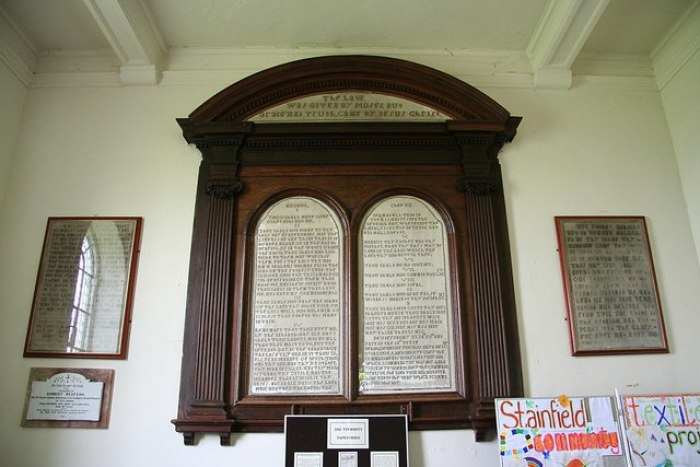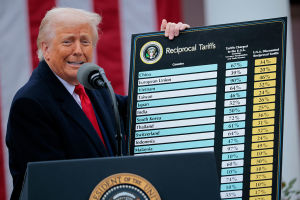Third Way Values: The Reconciliation

There is no Democrat or Republican in the third way. It is directed by the relational concerns of the Savior. He is confessed as our Messiah, our Christ, for a reason. He is the believer's one and only King. The mirroring of his work is our chief concern. So what does that work look like when it comes to relating to others?
First, there is the Great Commandment, which is love God with all your heart, soul, mind and strength and love your neighbor as yourself (Mark 12:29-34). This was said to be even more important than worship with burnt offerings! Luke 6:27-36 includes the call to love our enemies as a part of this distinctive love. It is a third way. When we live and react in ways that look like the world as we interact with those who think differently than us we take away our distinctive. We empty ourselves of a visible rationale for the gospel.
So when Paul came to summarize his ministry to the world, he chose a single term to build it around, reconciliation. Two texts describe it. In 2 Cor. 5:17-20, we are ministers of reconciliation between God and people. That is our political manifesto. Our message in v. 19 is an invitation, an urging that people be reconciled to God. There is a vertical reconciliation that is central to our relationships.
We also are described as ambassadors. An ambassador represents a country and its values in a foreign country in which he or she resides. This is true of all Christians anywhere. Whether they are in the USA, Australia, Kenya, Korea, Germany or Turkey, believers represent the ways of God where they are, the third way. Their citizenship and allegiance is to their heavenly homeland (Phil. 3:20-21).
They are part of a community of the reconciled that relativizes a nationalistic patriotism, because they have many brothers and sisters in many countries. That means they should care about what goes on elsewhere in the world and what actions mean for others outside their own political country. The ambassador for God puts that relationship first and seeks to reflect its greatness by seeking that which can bring people together, not tear them apart.
The second text is in Eph. 2:11-22. Here God brings former diehard enemies, Jew and Gentile, together. In other texts other estranged groupings become linked as one in what God has done (Gal. 3:29; Col. 3:8-10). This is the horizontal reconciliation that also is central to the gospel as it grows out of the vertical reconciliation we have with God. Such work reflects what it means to love your neighbor, for that is a goal of our activity as believers as commanded by our one and only King.
The pursuit of justice is an extension of such love that has ultimate reconciliation as a goal and that reflects the honoring of God (Micah 6:8). Sometimes social justice is proclaimed as a political ideology, bone that belongs to the "other" side, but it really is a biblical concept tied to the goal of showing what real reconciliation is like.
It sits under the Great Commandment as a reflection of it and as promoting the respect of what it means for each person to be made in the image of God. Each person is worthy of the dignity that comes with that image of God status. It is why Christians so deeply value life from start to finish and all the way through its journey on this earth.
So it is no accident that Paul summarizes his ministry in one word, reconciliation. Vertical and horizontal reconciliation shows that in God people who were apart can be brought together. It is a reconciliation that stands as a corporate destination for the gospel, one of the goals of which is peace or shalom, where people get along before God.
When we model and mirror such broad human concern for others in our community and outside of it, we show what we are about. We point people in the direction of what the gospel yields, not individually in our salvation, but corporately in our relationships. That makes it a core value of the Third Way and a target to keep in mind as we engage in our contentious political world. For the Third Way, making reconciliation great again is a driving value.
Dr. Darrell L. Bock is Executive Director for Cultural Engagement at the Hendricks Center at Dallas Theological Seminary as well as Senior Research Professor of NT Studies. He is an author or editor of over 40 books, including a New York Times Best Seller in non-fiction. He is host of the Seminary's Table podcasts (voice.dts.edu).




























